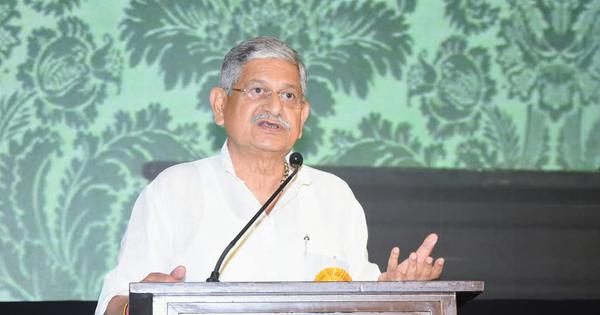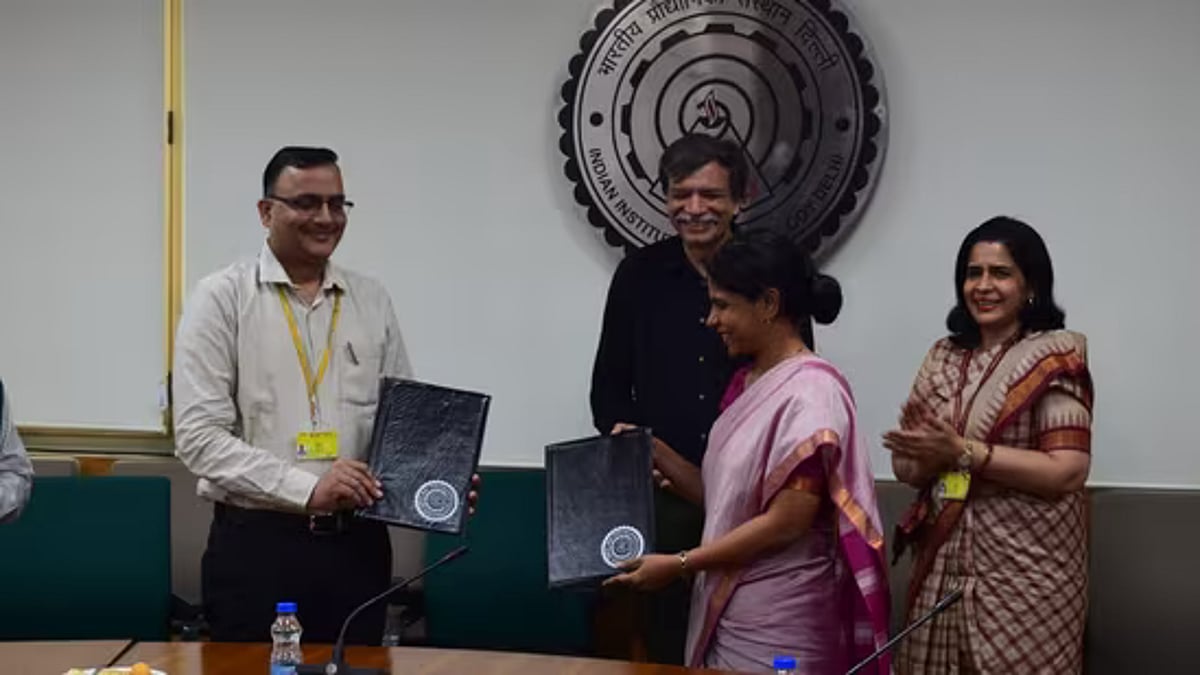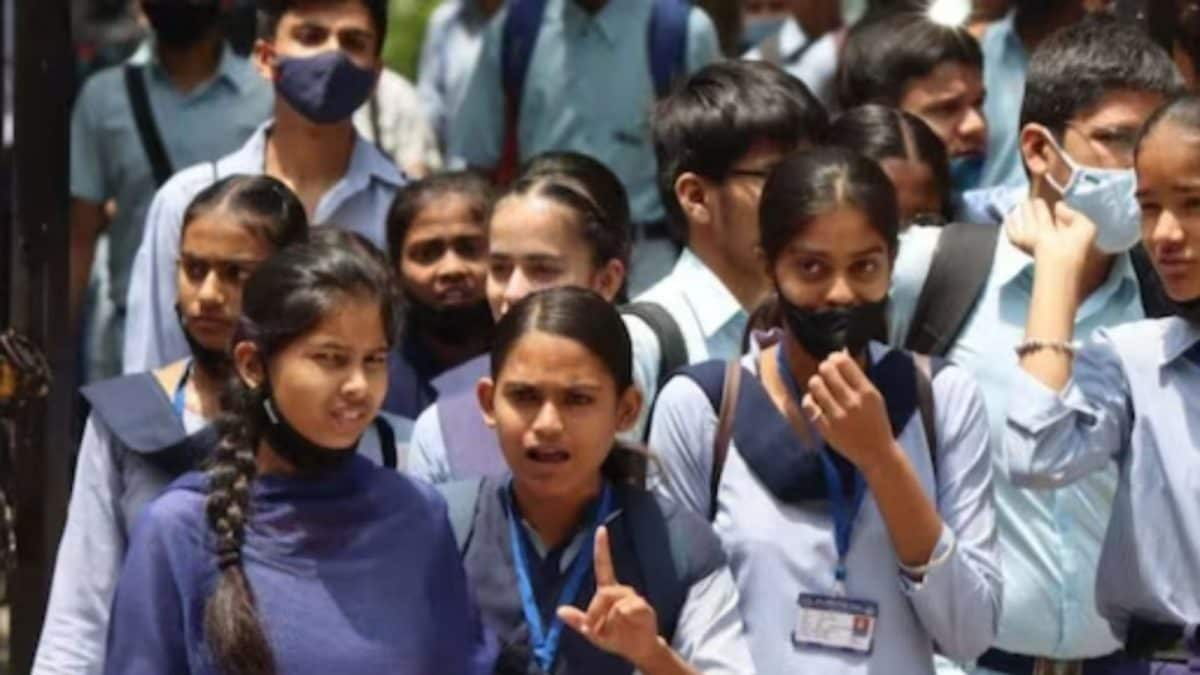Music is haram in Islam and now so in Bangladesh: Read how Yunus govt is pandering to radicals by scrapping recruitment of music teachers
The Yunus regime is not leaving any stone unturned to throw Bangladesh into the jaws of radical Islamism. A country, which once boasted of the songs of Kazi Nazrul Islam and Rabindranath Tagore, has now stopped the recruitment of music teachers. The interim government headed by Muhammad Yunus has scapped the posts of assistant teachers for music and physical education in primary schools. The decision was confirmed by a gazette notification on Monday (3rd November). Yunus has effectively amended the Government Primary School Teacher Recruitment Rules of 2025 and removed the positions for music teachers. In a statement, additional secretary Masud Akhtar Khan stated, “Although the rules issued last August had four categories of posts, two categories have been included in the amendment. The posts of assistant teachers for music and physical education are not in the new rules.” Mullahs up-in-arms against music It must be mentioned that radical Islamist outfits in Bangladesh had been campaigning for the recruitment of Islamic scholars instead of music teachers. Bangladesh Jamaat-e-Islami leader Mia Golam Parwar had lashed out at the decision to recruit music and dance teachers. He dubbed it ‘completely unacceptable’ and ‘suicidal move for the nation’. Another Jamaat leader Mujibur Rahman called for recruitment of Mullahs in schools to teach ‘religion’ based on Dawra-e-Hadith degrees and Fazil degrees from madrassas. Later, other radical outfits such Islami Andolon Bangladesh (IAB) and Khelafat Majlish conducted seminars denouncing music in schools as promoting ‘atheism’, making next generation ‘faithless’. IAB’s Ameer Syed Rezaul Karim threatened to unleash chaos on the streets if Islamic scholars were not appointed as teachers. Bangladesh Khelafat Majlish leader Maulana Jalal Uddin Ahmad claimed that absence of ‘Deeni Taleem’ in Bangladeshi schools was ‘shameful’ despite being a Muslim-majority country. Yunus, who has a history of appeasing Islamists, gave in to their demands and sidelined music education and cultural inclusion in primary schools of Bangladesh. Music is Haram in Islam Music is considered Haram (prohibited) in Islam based on the sayings of the Prophet Muhammad (Hadiths) and certain Quranic verses. Surah Al-Isra, Verse 64: [In this verse, Allah warns Satan:] “And incite [to senselessness] whoever you can among them with your voice (bisawtika), and assault them with your cavalry and your infantry, and be a partner with them in wealth and children, and promise them. But Satan does not promise them except delusion.” Surah An-Najm, Verses 59-61: “Then at this statement do you wonder? And you laugh and do not weep, While you are engaged in vain amusement/ saamidoon (polytheists’ practice of singing, playing instruments, and making noise)?” Sahih al-Bukhari: The Prophet Muhammad said: “From among my followers there will be some people who will consider illegal sexual intercourse, the wearing of silk, the drinking of alcoholic drinks and the use of musical instruments (ma’aazif), as lawful.” Sunan Ibn Maajah: The Prophet said: “A people of my Ummah will drink wine, calling it by other than its real name. Merriment will be made for them through the playing of musical instruments and the singing of female singers. Allah will cleave the earth under them and turn others into apes and swine.” Abdullah ibn Mas’ud (Companion of Prophet Muhammad): “Singing germinates hypocrisy (nifaaq) in the heart just as water causes crops to grow.” Muhammad Yunus and his appeasement of Islamic extremists Bangladesh witnessed a drastic rise in Islamism after Yunus came to power. He first revoked the ban on the radical Islamist outfit ‘Jamaat-e-Islami.’ Thereafter, he released the leader of the radical outfit ‘Ansarullah Bangla Team (ABT)’ Muhammad Jasimuddin Rahmani. At the same time, Muhammad Yunus downplayed the targeted attacks on the Hindu community by violent Muslim mobs. He has gone on record from lamenting about attacks on Hindus to saying that the claims of atrocities are ‘exaggerated‘. In that way, the controversial US asset was able to placate Islamic extremists. Given that Awami Legaue was against Islamism, the interim government first banned its student wing ‘Chhatra League,’ and then the parent party. Under the watch of Muhammad Yunus, Bangladesh saw a drastic rise in vigilante Muslim mobs, which unleashed violence under the pretext of protecting the tenets of Islam. These mobs were largely unorganised and called themselves ‘Tawhidi Janata (meaning Revolutionary People).’ They came under the spotlight over acts of vandalism and harassment of people. The Yunus regime introduced new textbooks for primary and secondary students, which falsely claimed that the first declaration of independence of Bangladesh was made by Ziaur Rehman (a favourite icon of Muslim hardliners in Bangladesh). The interim government also appo



The Yunus regime is not leaving any stone unturned to throw Bangladesh into the jaws of radical Islamism. A country, which once boasted of the songs of Kazi Nazrul Islam and Rabindranath Tagore, has now stopped the recruitment of music teachers.
The interim government headed by Muhammad Yunus has scapped the posts of assistant teachers for music and physical education in primary schools. The decision was confirmed by a gazette notification on Monday (3rd November).
Yunus has effectively amended the Government Primary School Teacher Recruitment Rules of 2025 and removed the positions for music teachers.
In a statement, additional secretary Masud Akhtar Khan stated, “Although the rules issued last August had four categories of posts, two categories have been included in the amendment. The posts of assistant teachers for music and physical education are not in the new rules.”
Mullahs up-in-arms against music
It must be mentioned that radical Islamist outfits in Bangladesh had been campaigning for the recruitment of Islamic scholars instead of music teachers.
Bangladesh Jamaat-e-Islami leader Mia Golam Parwar had lashed out at the decision to recruit music and dance teachers. He dubbed it ‘completely unacceptable’ and ‘suicidal move for the nation’.
Another Jamaat leader Mujibur Rahman called for recruitment of Mullahs in schools to teach ‘religion’ based on Dawra-e-Hadith degrees and Fazil degrees from madrassas.
Later, other radical outfits such Islami Andolon Bangladesh (IAB) and Khelafat Majlish conducted seminars denouncing music in schools as promoting ‘atheism’, making next generation ‘faithless’.
IAB’s Ameer Syed Rezaul Karim threatened to unleash chaos on the streets if Islamic scholars were not appointed as teachers.
Bangladesh Khelafat Majlish leader Maulana Jalal Uddin Ahmad claimed that absence of ‘Deeni Taleem’ in Bangladeshi schools was ‘shameful’ despite being a Muslim-majority country.
Yunus, who has a history of appeasing Islamists, gave in to their demands and sidelined music education and cultural inclusion in primary schools of Bangladesh.
Music is Haram in Islam
Music is considered Haram (prohibited) in Islam based on the sayings of the Prophet Muhammad (Hadiths) and certain Quranic verses.
Surah Al-Isra, Verse 64:
[In this verse, Allah warns Satan:] “And incite [to senselessness] whoever you can among them with your voice (bisawtika), and assault them with your cavalry and your infantry, and be a partner with them in wealth and children, and promise them. But Satan does not promise them except delusion.”
Surah An-Najm, Verses 59-61:
“Then at this statement do you wonder? And you laugh and do not weep, While you are engaged in vain amusement/ saamidoon (polytheists’ practice of singing, playing instruments, and making noise)?”
Sahih al-Bukhari:
The Prophet Muhammad said: “From among my followers there will be some people who will consider illegal sexual intercourse, the wearing of silk, the drinking of alcoholic drinks and the use of musical instruments (ma’aazif), as lawful.”
Sunan Ibn Maajah:
The Prophet said: “A people of my Ummah will drink wine, calling it by other than its real name. Merriment will be made for them through the playing of musical instruments and the singing of female singers. Allah will cleave the earth under them and turn others into apes and swine.”
Abdullah ibn Mas’ud (Companion of Prophet Muhammad):
“Singing germinates hypocrisy (nifaaq) in the heart just as water causes crops to grow.”
Muhammad Yunus and his appeasement of Islamic extremists
Bangladesh witnessed a drastic rise in Islamism after Yunus came to power. He first revoked the ban on the radical Islamist outfit ‘Jamaat-e-Islami.’
Thereafter, he released the leader of the radical outfit ‘Ansarullah Bangla Team (ABT)’ Muhammad Jasimuddin Rahmani.
At the same time, Muhammad Yunus downplayed the targeted attacks on the Hindu community by violent Muslim mobs. He has gone on record from lamenting about attacks on Hindus to saying that the claims of atrocities are ‘exaggerated‘.
In that way, the controversial US asset was able to placate Islamic extremists. Given that Awami Legaue was against Islamism, the interim government first banned its student wing ‘Chhatra League,’ and then the parent party.
Under the watch of Muhammad Yunus, Bangladesh saw a drastic rise in vigilante Muslim mobs, which unleashed violence under the pretext of protecting the tenets of Islam.
These mobs were largely unorganised and called themselves ‘Tawhidi Janata (meaning Revolutionary People).’ They came under the spotlight over acts of vandalism and harassment of people.
The Yunus regime introduced new textbooks for primary and secondary students, which falsely claimed that the first declaration of independence of Bangladesh was made by Ziaur Rehman (a favourite icon of Muslim hardliners in Bangladesh).
The interim government also appointed a Hizb ut-Tahrir terrorist named Mohammad Azaz as the administrator for the Dhaka North City Corporation (DNCC).
The situation had become so grim that Bangladeshi ambassador to Morocco Mohammad Harun Al Rashid was forced to slam the Muhammad Yunus-led interim government in a scathing Facebook post in March 2025.
Descent of Bangladesh into the darkness of Islamism
In July this year, the ‘Bangladesh Bank’ gave a Talibani farman (diktat) barring female employees from wearing ‘short dresses’, ‘short sleeves’ and ‘leggings’. The directive by the Central Bank of Bangladesh also recommended that women wear headscarves and hijab.
‘Bangladesh Bank’ also warned of disciplinary actions against employees who refuse to adhere to the new guidelines. The outrageous directive has drawn flak from women groups.
Fauzia Moslem, who serves as the President of the Bangladesh Mahila Parishad pointed out, “I’ve never seen such a directive before. But considering everything happening now, it’s not hard to guess why this guideline was introduced. A certain cultural sphere is being shaped, and this directive reflects that effort.”
This diktat by ‘Bangladesh Bank’ bore an uncanny resemblance to the orders by the Taliban regime in Afghanistan, restricting women from wearing clothes of their choice. Islamists had previously unleashed havoc on university teachers in Bangladesh by labelling them as ‘anti-hijab.’
In July 2025, an Islamic outfit named ‘Jamaat-Char Monai’ announced its plans to turn Bangladesh into a Sharia-compliant nation like Afghanistan. It also vowed to follow the model implemented by the Taliban regime.
The organisation’s leader Mufti Syed Muhammad Faizul Karim declared, “If govt is formed by winning the national election, the Islamic Movement Bangladesh will introduce Sharia law in the country.”
In April this year, Muslims belonging to the radical outfit ‘Hefazat-e-Islam’ hung the effigy of a woman, stripped and defiled it with shoes to demand the abolishment of the Women Affairs Reform Commission in Bangladesh.
The incident occurred at the campus of the University of Dhaka near the iconic ‘Anti Terrorism Raju Memorial’ sculpture. In a deleted video shared by Khoborer Kagoj, Muslims were seen assaulting an effigy of a woman, defiling and kicking it and thrashing it with shoes to display their angst. The effigy of the woman was draped in a saree (the kind that Hindu women wear) with its hands tied behind.
In March 2025, a librarian at Dhaka University, identified as Asif Sardar Arnab, sexually harassed a female student. Although he was initially arrested, Asif was quickly released on bail.
He was cheered and greeted with garlands by a radical Muslim mob, aligned with his behaviour. In the meantime, the victim had been subjected to violent threats for speaking out against the accused.
Asif sexually harassed the female student, claiming that her dress did not ‘sufficiently cover’ her breasts. His action was praised by Muslims for enforcing Islamic morality.

In January this year, a Muslim mob laid siege to the Tilakpur High School in Joypurhat district of Bangladesh. The extremists, comprising madrassa students, carried out vandalism to protest against a friendly football match between two women’s teams.
The match was scheduled to take place on 29th January at the playground of the Tilakpur High School between the Joypurhat and Rangpur women’s football teams.
In visuals that have surfaced on social media, the Muslim mob could be seen vandalising the tin fence of the school. Prior to carrying out the attack, they gathered outside the Tilakpur railway station and gave provocative speeches.

The mob demanded the cancellation of the women’s football match, alleging non-observance of purdah. Thereafter, the extremists made their way to the Tilakpur High School and unleashed mayhem.
A radical Muslim declared, “I want to warn those who want to earn money by exposing our women. Be careful. Stop all women’s games in the future. If you don’t stop, then we will show our resistance.”
OpIndia had previously reported on the alarming rise of rape cases in Bangladesh under the watch of Muhammad Yunus. In the meantime, Islamists who committed heinous crimes against women were freed by the top court of the country.


























































































